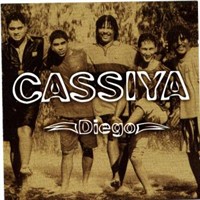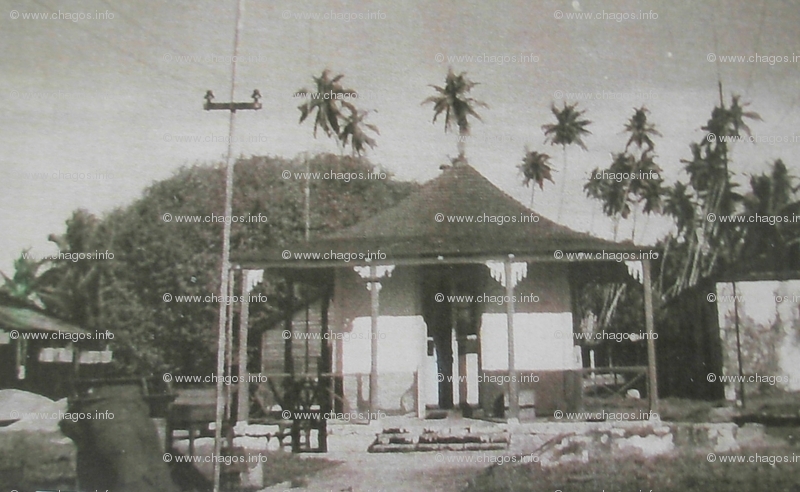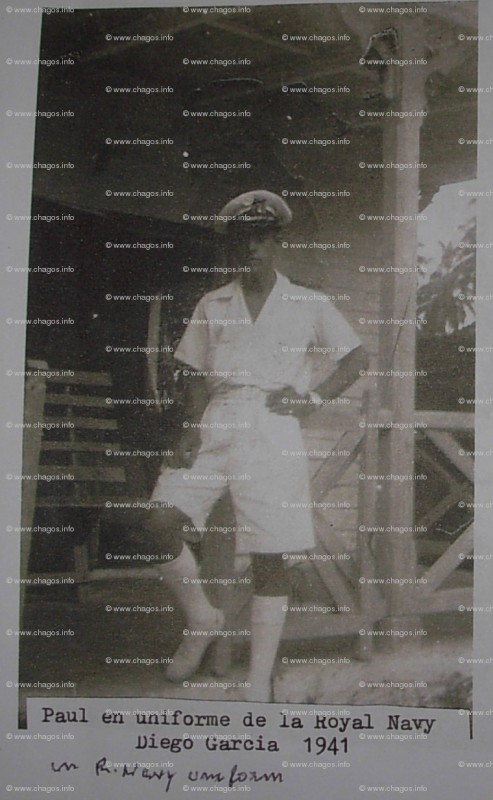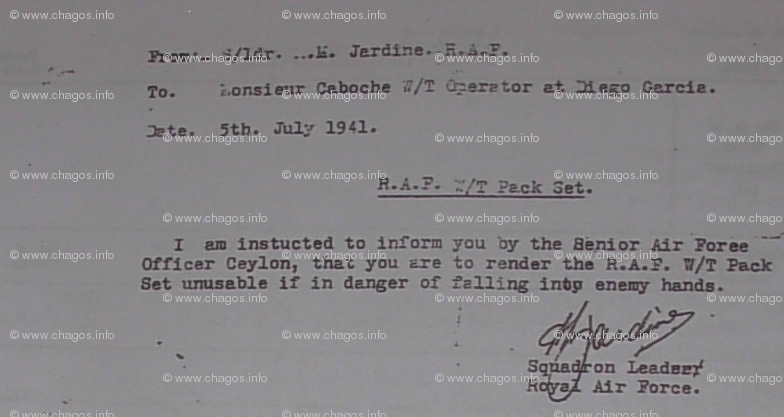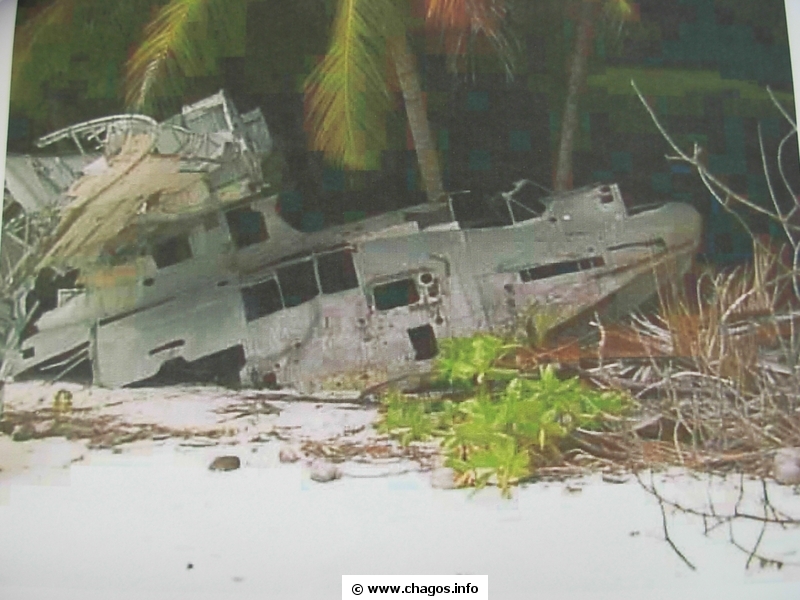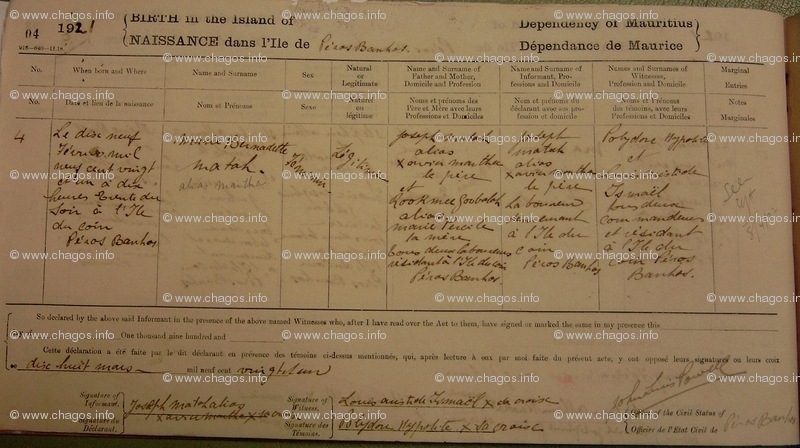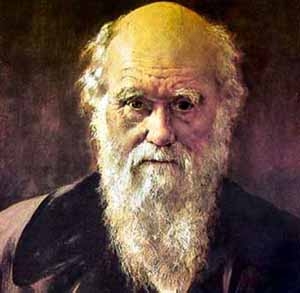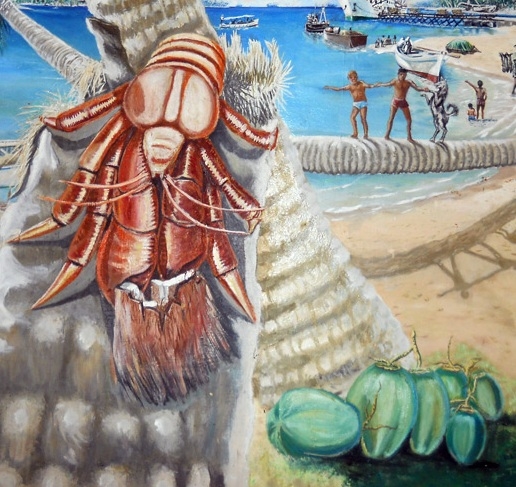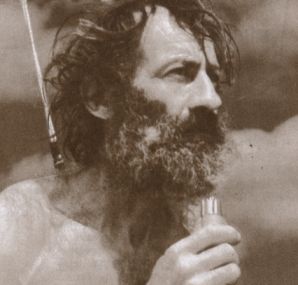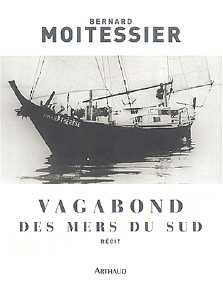In recent years, a number of songs with political overtones, known as ‘chansons engagés’ have been written and performed by Mauritian and Chagossian musicians. A selection is provided below.
Rane Nu Later, Rane Nu Lamer – Grup Latanier
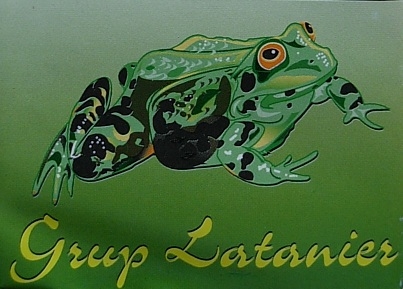
Rane nu later rane nu lamer, rane nu later be rane nu lamer,
Rane nu later rane nu lamer, lepep moris bien bien enkoler
Pran zot kanon ris zot kales, aret explwat nu bane risess.
Rane nu later rane nu lamer, rane nu later be rane nu lamer,
Rane nu later rane nu lamer, lepep moris bien bien enkoler
Pran zot kanon ris zot kales, aret explwat nu bane risess.
Angle, Franse ek Amerikin, pe pran nu later pu zot di-bien.
Sou-pretex defenz ek meteo, zot ocupe Tromelin et nu Diego.
Rane nu later rane nu lamer, rane nu later be rane nu lamer,
Rane nu later rane nu lamer, lepep moris bien bien enkoler
Pran zot kanon ris zot kales, aret explwat nu bane risess.
Ban Sovietik ek sud-Korein, pe pran nu la mer pu zot bassin,
Ar nu bane ban zot pe fer piyaz, e lotorite pa mem senti loutraz
Rane nu later rane nu lamer, rane nu later be rane nu lamer,
Rane nu later rane nu lamer, lepep moris bien bien enkoler
Pran zot kanon ris zot kales, aret explwat nu bane risess.
Inperialis ouver bien zot zorey, lepep Moris ape sonne so reveil,
L’Ocean Indien pa pu Europein, ni pu Sovietik, ni pu Amerikin.
Rane nu later rane nu lamer, rane nu later be rane nu lamer,
Rane nu later rane nu lamer, lepep moris bien bien enkoler
Pran zot kanon ris zot kales, aret explwat nu bane risess.
Pep Indien, Seychellois, Komoryin,
Pep Malgas, Reuyone, Morisyin,
Tou bane zenfans nu l’ocean, kouma enn sel vag,
Bizin balyer ban sucer disan.
Rane nu later rane nu lamer, rane nu later be rane nu lamer,
Rane nu later rane nu lamer, lepep moris bien bien enkoler
Pran zot kanon ris zot kales, aret explwat nu bane risess.
Rane nu later rane nu lamer, rane nu later be rane nu lamer,
Rane nu later rane nu lamer, lepep moris bien bien enkoler
Pran zot kanon ris zot kales, aret explwat nu bane risess.
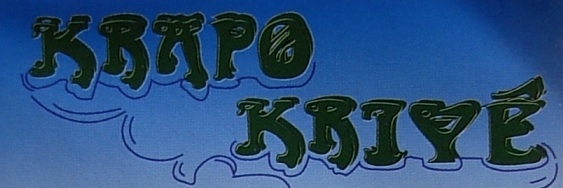
ENGLISH TRANSLATION OF CREOLE LYRICS
Give us back our land, give us back our ocean; give us back our land, well give us back our ocean
Give us back our land, give us back our ocean, the nation of Mauritius is very angry
Take your cannon and ‘move your carriage’ (double entendre for ‘piss off’), stop exploiting our wealth.
Give us back our land, give us back our ocean; give us back our land, well give us back our ocean
Give us back our land, give us back our ocean, the nation of Mauritius is very angry
Take your cannon and ‘move your carriage’ (double entendre for ‘piss off’), stop exploiting our wealth.
English, French and American, are taking our land for their own
Under the pretext of defence and weather, they are occupying Tromelin and our Diego.
Give us back our land, give us back our ocean; give us back our land, well give us back our ocean
Give us back our land, give us back our ocean, the nation of Mauritius is very angry
Take your cannon and ‘move your carriage’ (double entendre for ‘piss off’), stop exploiting our wealth.
The Soviets and South Koreans, are taking our oceans for their pool.
They are pillaging our coral reefs, and the authorities cannot see the outrage
Give us back our land, give us back our ocean; give us back our land, well give us back our ocean
Give us back our land, give us back our ocean, the nation of Mauritius is very angry
Take your cannon and ‘move your carriage’ (double entendre for ‘piss off’), stop exploiting our wealth.
Imperialists listen up, the nation of Mauritius is sounding its wake up call.
The Indian Ocean is not for Europeans, neither for the Soviets nor the Americans.
Give us back our land, give us back our ocean; give us back our land, well give us back our ocean
Give us back our land, give us back our ocean, the nation of Mauritius is very angry
Take your cannon and ‘move your carriage’ (double entendre for ‘piss off’), stop exploiting our wealth.
Indians, Seychellois and Comorians
Malagasy, Reunioneses, Mauritians
All the children of our ocean, like a single enormous wave
We need to sweep away the bloodsuckers.
Give us back our land, give us back our ocean; give us back our land, well give us back our ocean
Give us back our land, give us back our ocean, the nation of Mauritius is very angry
Take your cannon and ‘move your carriage’ (double entendre for ‘piss off’), stop exploiting our wealth.
Give us back our land, give us back our ocean; give us back our land, well give us back our ocean
Give us back our land, give us back our ocean, the nation of Mauritius is very angry
Take your cannon and ‘move your carriage’ (double entendre for ‘piss off’), stop exploiting our wealth.
© LDC Cuniah, 2011.

